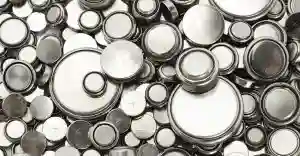Chinese steel manufacturer Dinson Iron and Steel Company (DISCO) has announced plans to produce lithium-ion batteries in Zimbabwe saying the southern African country has all the raw materials required in the production process.
The company expects to produce two million tonnes of lithium concentrate per year to support the battery manufacturing plant, according to The Sunday Mail.
DISCO, which is currently constructing Africa’s largest integrated steel plant in Manhize near Mvuma to the tune of US$1.5 billion, is one of the three local subsidiaries of the world’s largest stainless steel producer Tsingshan Holdings.
DISCO project director Mr Wilfred Motsi said Zimbabwe is endowed with mineral resources such as nickel and graphite that are key in the production of lithium-ion batteries. He said:
As a company, we are gratified by the Government’s position to ban raw lithium exports; it is something that we have been waiting for and it also strategically positions us in our plans to go green and set up a lithium-ion battery manufacturing plant.
Zimbabwe is endowed with vast mineral resources, including graphite in the Karoi area, and nickel, which are critical raw materials in lithium-ion battery production.
So, given our future plans for the battery manufacturing plant, the vast mineral endowment, coupled with the move by the Government to ban raw lithium exports, puts us on track to set up a viable project in Zimbabwe.
We really commend the Government for banning raw lithium exports, even on chrome ore. We are one of the proponents of such a policy.
We have not yet gone to the stage of identifying the plant’s location and cost. We are still doing feasibility studies and significant headway has been made in that regard
In December 2022, Zimbabwe banned exports of lithium ore and unpurified lithium salts in a bid to encourage investment in local processing facilities.
The government said only producers who special circumstances can be exempted from the ban but still would have to pay the 15 per cent export tax.
Lithium-ion batteries are used in electric vehicles, electronic gadgets, toys, wireless headphones, hand-held power tools, and small and large power appliances, as well as electrical energy storage systems.

